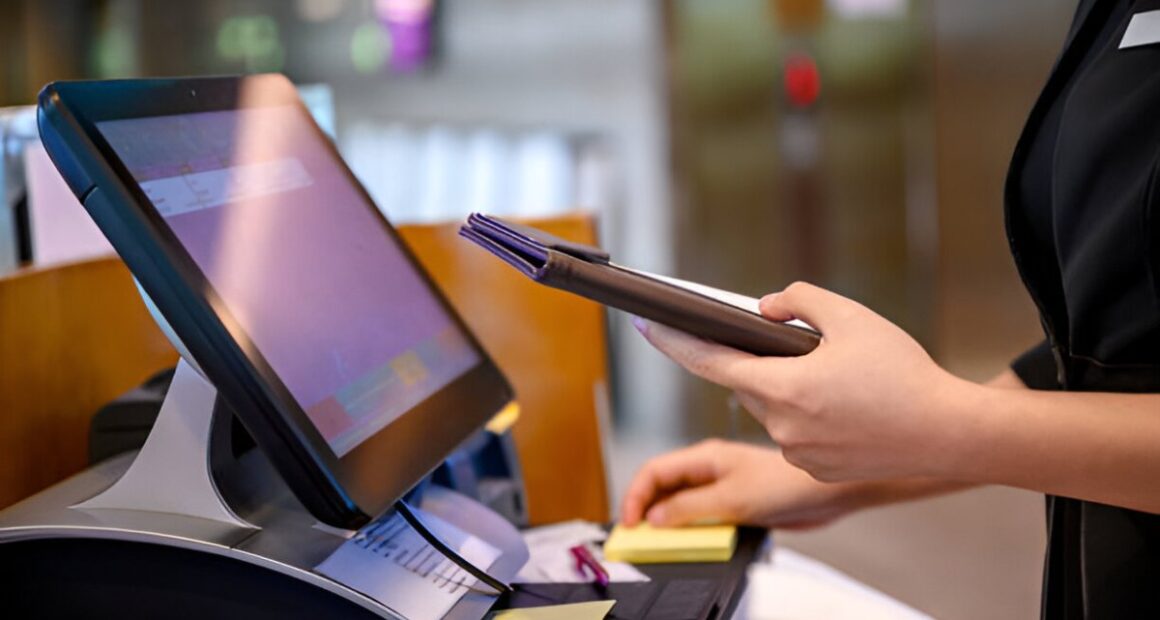When the term POS meaning is mentioned, especially in business and retail, it means Point of Sale. This is where the magic happens—when a customer completes a purchase, most sales are made. A POS system is an invaluable aspect in the processing of payments and the overall management of the stock and workings of the enterprise. Moving ahead, you’ll get into all the concerns related to POS systems and how the whole thing operates.
What Is a POS Meaning (Point of Sale)?
A Point of Sale (POS) refers to the point at which purchases happen, whether physical or technical. The POS meaning can be at a physical store, an online shop, or through an application where a consumer pays for a product or a service. In current business environments, POS systems conduct payments and monitor sale activities and customer details.
How Does a POS System Work?
POS involves hardware and software tools used to affect business transactions. Here’s a breakdown of the key components:
POS Hardware
- Cash Registers: The old tool used for storing cash as well as recording sales.
- Card Payment Terminals: Point of sale systems and acceptance systems that take debit/ credit card payments as well as contactless and mobile payments.
- Barcode Scanners: Employed for bar code reading on products in order to support instances of fast checkouts and counting of the products on the shelves.
- Receipt Printers: Guarantee to offer customers materials like receipts which will prove that the products belong to the customers.
- POS Tablets/iPads: Multipurpose devices attached to portable terminals which enable payments to be made at any point in the store.
POS Software
- Transaction Management: Manages and records all transactions, total and tax, and offer options for electronic or paper receipts.
- Inventory Tracking: Subscribes to the ticket updates allowing for automatic update of the inventory after each ticket has been sold.
- Customer Relationship Management (CRM): Aims at keeping customer data and records, buying patterns and provide loyalty incentives.
- Sales Reporting: Entered in today’s top business intelligence applications because its main utilization is in the evaluation of sales, and therefore, performance.
Types of POS Systems
This makes POS systems of several types where each of them is created for the various requirements of a given business. Here are the most common ones:
1. Retail POS
Retail point of sale or retail POS systems are used in actual stores to track, sell, and process payments for inventory.
2. Restaurant POS
Restaurant POS systems manage table orders, kitchen display, and payments while having flexibility of menu, and splitting of checks.
3. Mobile POS
Mobile POS systems mean that companies can accept payments with the usage of handheld devices at any location. Favoured by small businesses, they can operate through mobile phones or tablets.
4. E-commerce POS
This kind of point-of-sale system is suitable together with online shops: it allows managing stock, sales, and customer information in one place. Most E-commerce POS systems are compatible with the shopping carts such as Shopify or WooCommerce.
Benefits of a POS System
Implementing a POS system offers a range of benefits that can improve business efficiency and customer satisfaction:
- Faster Transactions: It positively influences the rate of the payment process; customers make payments promptly.
- Improved Inventory Management: Real-time replenishment thereby minimizing instances of having no stock in the business.
- Sales Reporting: Provides reports while enabling organizations to maintain sales records to assess trends in the market.
- Customer Insights: Used to retain customers information for the purpose of personalizing the customer’s experience, customer rewards, and inclusive of proper targeted and relevant marketing information.
- Payment Flexibility: They include; cash, credit cards, and mobile payment solutions such as Apple pay and google pay.
Key Features of a POS System
To get the most out of a POS system, look for these essential features:
- Multi-payment Support: Takes credit, debit cards, mobile wallet and gift cards.
- Inventory Management: There is also an automatic system that refreshes the stock quantity after any purchase has taken place.
- Customer Management: Manages details of the customer and their buying behavior.
- Sales Reports: Uses daily, weekly or monthly sales volume reports.
- Employee Management: Manages shift information of its employees, records their performance and grants privileges in the system.
Why Every Business Needs a POS System
Whether your store is small or large, a POS system is an indispensably crucial device for improving your performance. Here’s why:
1. Efficiency: Saves much time because it performs many operations that would take time if done by other means.
2. Accuracy: Eliminates human factor as a cause of inaccurate calculations and misplacement of inventory.
3. Better Customer Experience: Being able to check out more quickly and the opportunity to make use of a loyalty card makes shopping more fun.
4. Data-Driven Decisions: POS systems give information on sales to influence price, promotional strategies, and stock.
5. Security: Current day POS are secured hence customer information and also their payments are protected.
FAQs About POS Systems
1. What is a POS transaction?
POS transaction is any type of buying or paying at a place of sale, physical or over the internet.
2. In what way can a POS help in inventory?
A POS system shows how the inventory is faring at any particular time. Every sale affects its timing, which prevent stocked out or overstocked items in businesses or corporations.
3. Which are the recommended POS for small business?
Some of the top POS for small businesses are square, Shopify POS, and clover. They are cheap, simple to install and eradicate most of the bacteria’s in the atmosphere.
4. Is it possible to use the POS system for both store and online business?
Yes, in today’s world, POS systems are interconnected with e-business solutions, and most of them let the sellers control both the company’s offline and online stores.
Conclusion
Not only is a POS system a payment processing tool, it is designed to be the central command of today’s retail businesses. For sales or stock records or any other aspect in your business, a good POS meaning can be of much help in the overall organizational operations. Depending on whether you own a small shop or an immense corporation, buy a POS and the outcome will determine the success of the business.





